This content originally appeared on Bits and Pieces - Medium and was authored by Chameera Dulanga
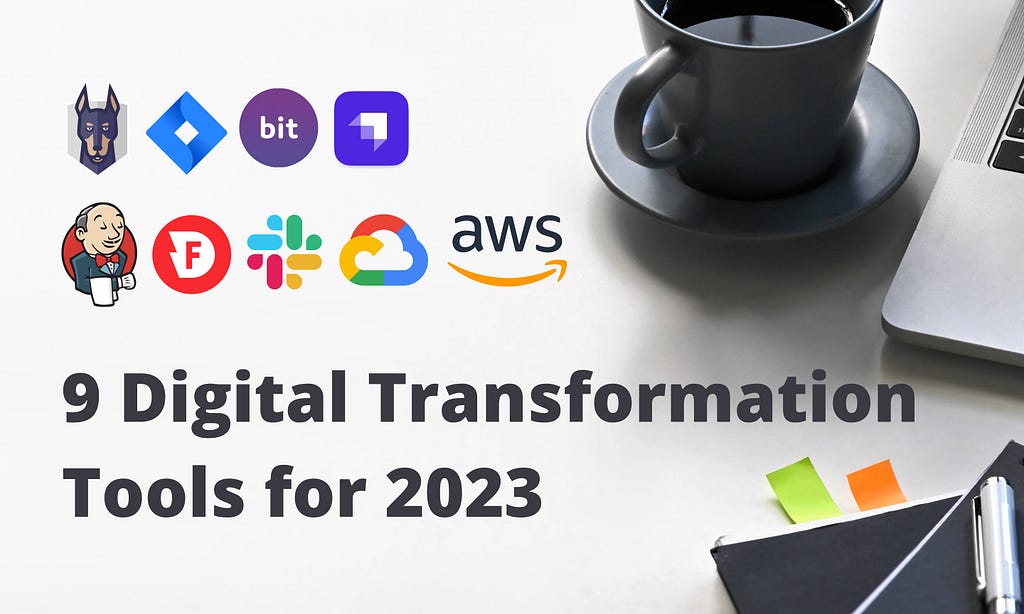
Introduction
Today, we live in a digital world. Businesses and organizations are rapidly transforming their processes into apps and websites to stay ahead of the competition. As a result, developers are relentlessly working on building and delivering high-quality applications.
However, this rapid transformation process is not an easy task. Developers need knowledge of specific tools and workflows to streamline their work processes to deliver high-quality applications with good user experience.
Hence, this article will discuss 9 digital transformation tools every developer should use to transform business processes into high-quality applications easily.
1. Bit
Bit is the most powerful digital transformation tool available in the market for developing online applications and websites. Bit allows organizations to create shared app building blocks and make them available to all the developers in the organization.
Most importantly, Bit saves around 75% of the development time on new applications while improving the delivery speed by x2 — x3 times in the first year or so. Furthermore, it reduces the average cost per application by around 80% while increasing the application quality and consistency by about 60%-70%.
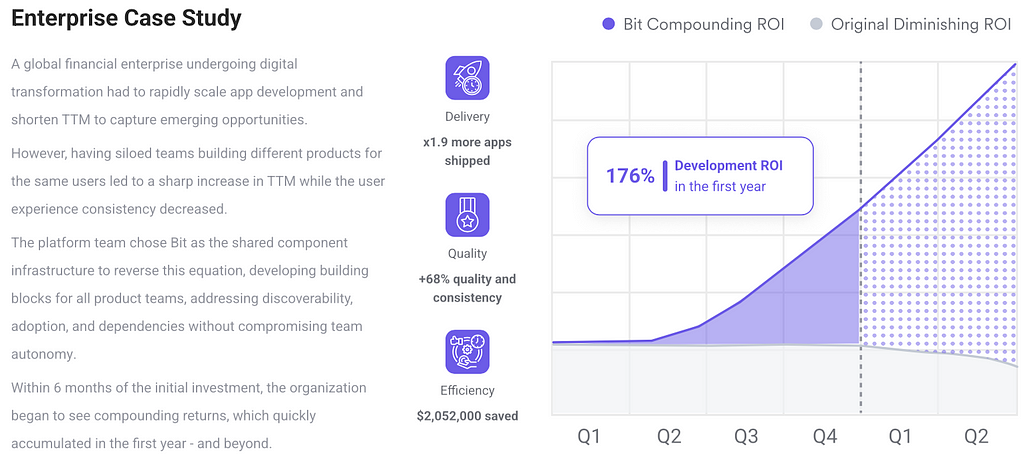
Although it was released only in 2020, it’s already been adopted by many Fortune 500 companies from all industries, including tech, health, finance, and more. For example, Dell has successfully used Bit to develop a shared building block approach to build applications with better user experience. You can find more on their transformation journey here.
Bit provides open-source tools for developers to build reusable components and compose them into new apps and features. At the same time, organizations can use bit.cloud, to host, share, and collaborate on components. Every new component added to the organization will become a building block for every application allowing everyone to build on each other and stay in sync.
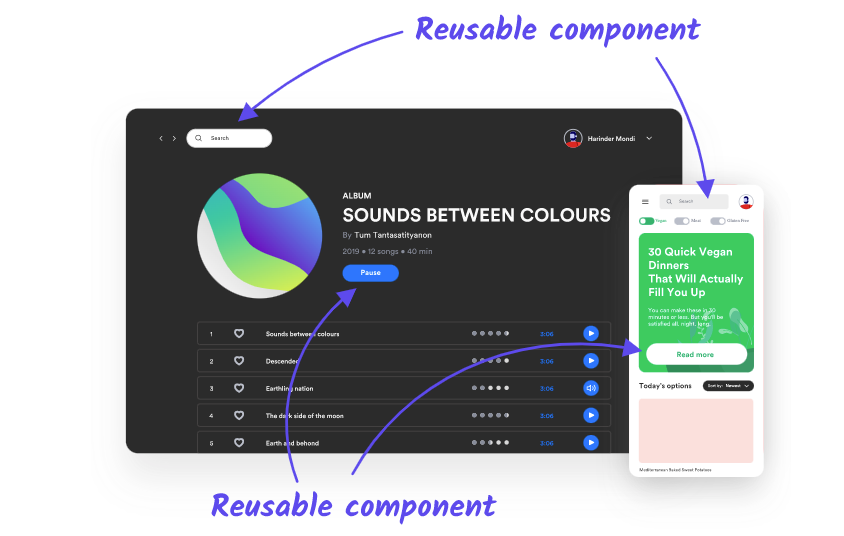
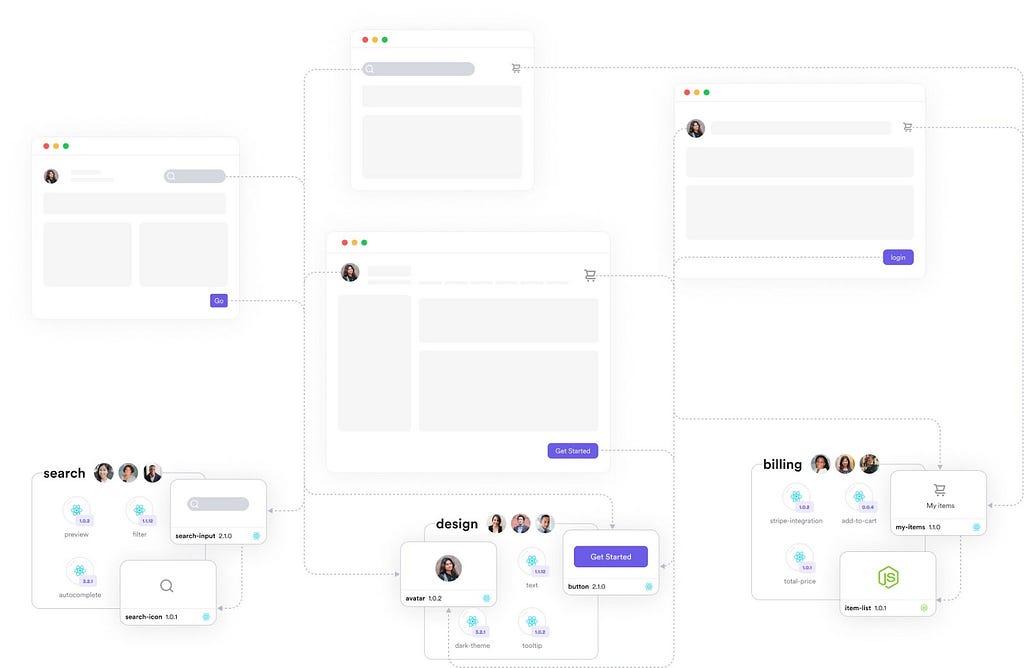
Bit is the perfect choice if you are looking for a way to speed up and standardize the development of new applications while creating workflows for product teams to ship autonomously. Furthermore, building more modular and manageable software and cross teams integrations will make your development process well ahead of the competition. So, it is highly encouraged you to use Bit for your organization’s digital transformation process.
2. Headless CMSs
The concept of headless CMSs revolutionalized content management systems by separating where the content is stored from where it is presented. In other words, it provides an independent interface for content management, allowing users to publish content in multiple frontends through APIs. Strapi, Sitecore, Prismic, Contentful, Storyblok, and Bloomreach are some of the most used headless CMSs around the globe.
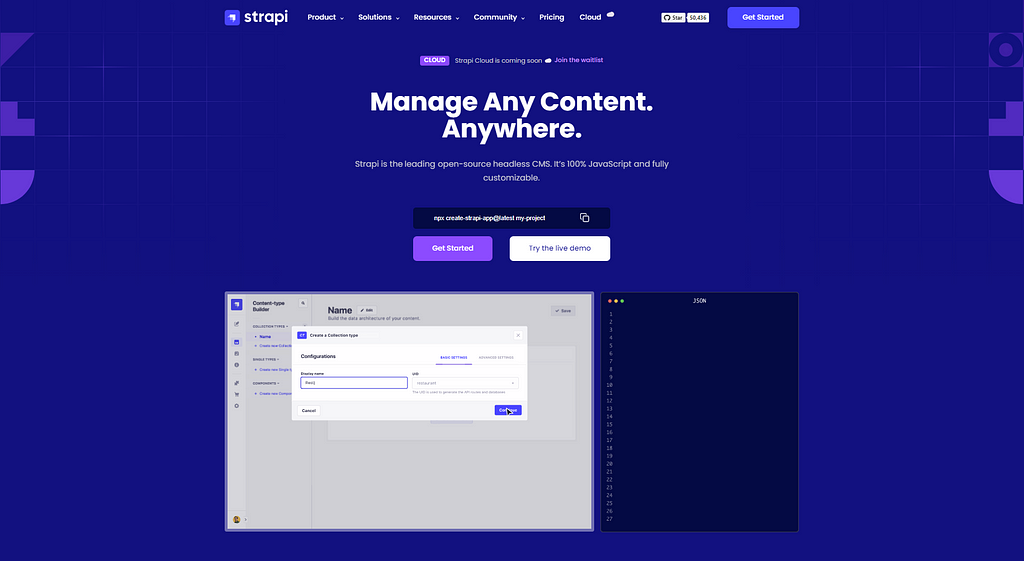
Source — https://strapi.io/
Compared to traditional CMSs, headless CMSs provide an excellent level of speed and flexibility for content delivery. Thus, it is a tremendous digital transformation tool that can help your organization in many ways.
Headless CMSs allow organizations to decide the frontend of their applications freely. Organizations can add new interfaces or components to their design without being limited to the CMS’s features. Also, the development team has the complete freedom to decide the framework they use. It will make the development process much faster, allowing the organization to go to the market earlier.
Furthermore, headless CMSs can easily be used as combos with tools like Bit to build frontends with reusable and customizable components.
3. Data Management Tools
Data is one of the most important aspects of the modern world. Most organizations and businesses collect large quantities of data to improve the accuracy of their decision-making processes. Efficient data management and the analytical process will allow organizations to identify future trends, detect frauds, identify buying patterns, and many more to boost their businesses. Thus, data management has become integral to the organizational digital transformation process.
However, it is impossible to manage such large quantities of data manually. Hence, various tools were introduced to automate the data management processes. For example, Firebolt, Snowflake, Google Cloud BigQuery, Amazon Redshift, and Vertica are some of the most widely used data management tools among developers.
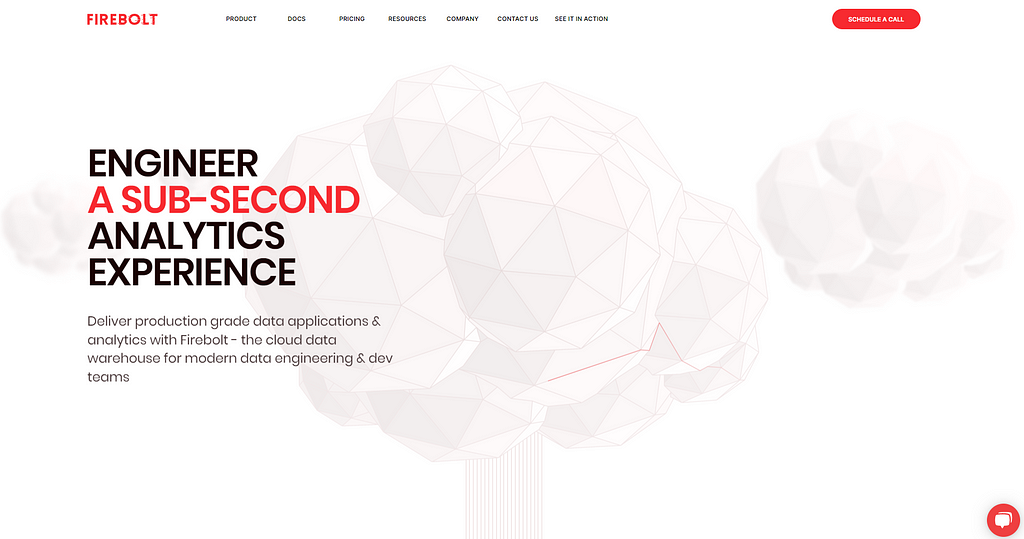
Source — https://www.firebolt.io/
These tools allow organizations to easily perform tasks like preprocessing, normalization, backups, data restructuring, warehousing, access control, and more. Ultimately, they will speed up the data analytics process and help organizations make quick and better decisions than their competitors.
4. No-code/ Low-code Platforms
No code and low code are two exciting modern-day software development concepts that allow creating applications with minimum code lines or just dragging and dropping components. Even people with no prior coding experience can quickly get started with low-code and no-code tools to convert their business processes into applications. Hence, low-code and no-code platforms have become valuable tools in digital transformation.
Low code and no code platforms allow developers to improve the development process with rapid prototyping and encourage the use of agile development to get continuous feedback from the end users. Furthermore, these tools support web and mobile development and remove a significant portion of development work to speed up the market entry of the application.

Source — https://www.builder.io/
Today, there are a large number of low-code and no-code platforms. However, it is better to choose a leading platform like Builder.io, Appian, Mendix, or Quickbase to start your no-code journey.
5. Security Tools
Application security has become a critical part of digital transformation due to increasing threats of cyber attacks. Organizations have invested significantly in securing their applications and user data when transforming business processes into applications. Security has become the 2nd biggest investment in many organizations, followed by the cloud.
However, traditional security measures can take significant time to perform and significantly increase development time. Thus, moving into modern techniques and tools to perform security tests and verifications is essential. For example, you can use tools like Snyk to scan and fix security vulnerabilities in your code, dependencies, docker images, and infrastructure configurations. Most importantly, these tools increase application security while speeding up the development process. Hence, modern security tools are very useful in digital transformation processes.
6. Cloud Services
The introduction of cloud services was a massive step in the software development industry. It resolved issues in many areas, including performance, storage, availability, hosting, and more. Furthermore, cloud services allow organizations to move their on-premises applications and data storage to cloud services, allowing them to access applications and data from anywhere.
Amazon Web Services, Microsoft Azure, and Google Cloud are the top 3 leading cloud service providers available, and they provide hundreds of different services at your disposal. For example, AWS provides more than ten different databases, including DynamoDB, Amazon Aurora, Amazon RDS, and Amazon ElastiCache.
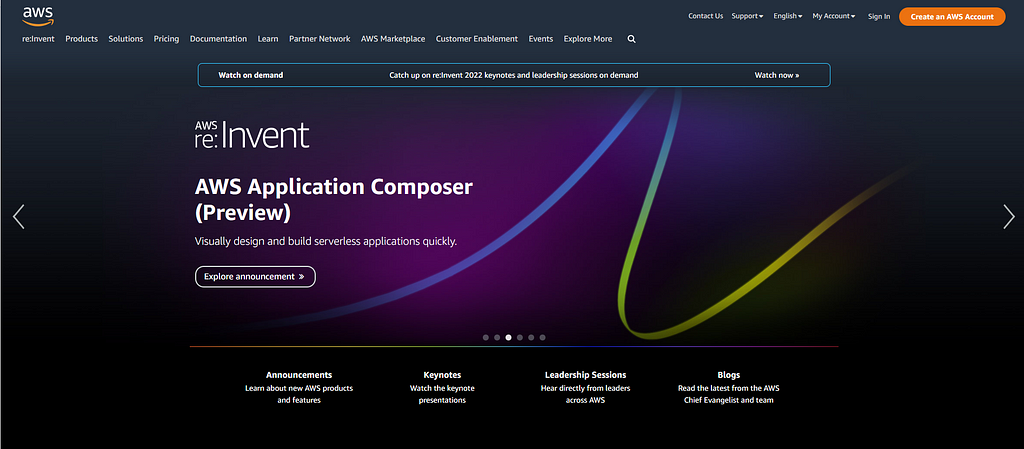
Source — https://aws.amazon.com/
This wide range of service selections has made digital transformation processes easier for organizations. They can select the most suitable services for hosting, databases, security, and more based on their requirements. It will only take a few seconds to spin up most of the cloud services, and you can significantly improve your development speed by using them. Furthermore, cloud services facilitate non-functional requirements like performance, availability, scalability, and maintainability without extra effort.
7. Project Management Tools
Project management tools can be recognized as the backbone of digital transformation since they help manage the whole development process. For instance, you can use project management tools to perform tasks like
- Managing developers.
- Managing project requirements.
- Progress tracking.
- Report generation.
- Time logging.
In addition, project management tools streamline the development process by providing a centralized dashboard to monitor all the project-related details, including assigned person, due date, and status.
Jira, ClickUp, Monday, Airtable, and SmartSheet are some of organizations’ most common project management tools.
8. CI/CD Tools
Continuous integration and delivery tools play a significant role in the application delivery process. Traditionally, developers followed manual approaches to build and release applications after introducing new features or fixing bugs. However, with the introduction of concepts like Microfrontends, it has become harder to handle builds and releases manually. As a result, various tools have been introduced to automate the build and release process.
Modern CI/CD tools provide a complete workflow for developers where they can configure to automatically trigger a build pipeline whenever there is a commit in your version controlling system. Furthermore, you can integrate security tests, code quality assessments, and unit tests into the build pipeline and trigger them automatically. Overall, CI/CD tools speed up the application delivery process and roll out new features immediately.
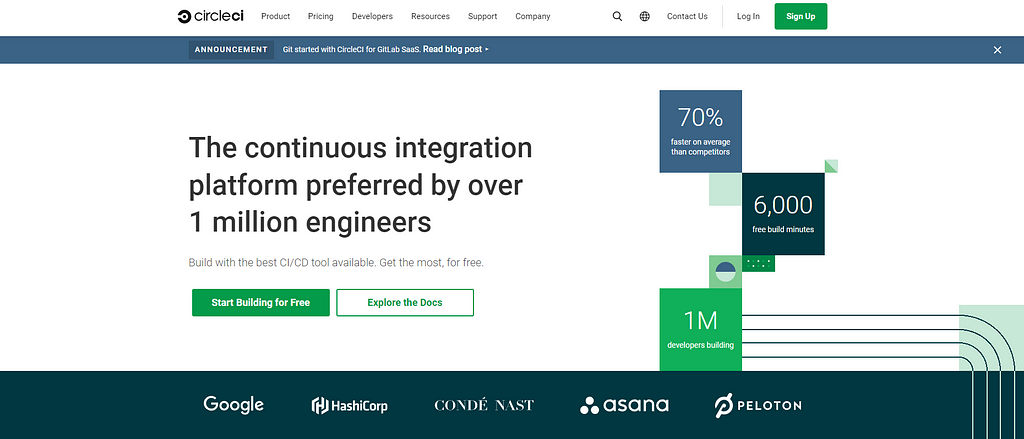
Source — https://circleci.com/
Jenkins, Circle CI, GitLab, Buddy, and Travis CI are some of the most popular CI/CD tools.
9. Communication Tools
After the COVID-19 lockdown period, most organizations adopted remote or hybrid work culture. Therefore, it was important to maintain active communication among team members to keep everyone in sync. In addition, especially in development, everyone should understand project requirements and responsibilities well. If not, there can be significant issues like repetitive work and conflicts.
Using a specialized communication tool like Slack, Microsoft Teams, or Skype allows organizations to create separate channels for each team and increase the interactions among team members. Messaging, video conferencing, and file sharing are some of the core features of modern communication tools. Furthermore, many tools allow integrations with project management tools to get live updates on project progress.
Ultimately, these tools increase the team’s productivity and help organizations speed up their digital transformation process.
Conclusion
This article presented the 9 best digital transformation tools every developer should know. These suggestions will help you easily transform your business processes into high-quality applications with minimum time and effort.
Thank you for reading.
9 Best Digital Transformation Tools for 2023 was originally published in Bits and Pieces on Medium, where people are continuing the conversation by highlighting and responding to this story.
This content originally appeared on Bits and Pieces - Medium and was authored by Chameera Dulanga
Chameera Dulanga | Sciencx (2022-12-28T07:02:22+00:00) 9 Best Digital Transformation Tools for 2023. Retrieved from https://www.scien.cx/2022/12/28/9-best-digital-transformation-tools-for-2023/
Please log in to upload a file.
There are no updates yet.
Click the Upload button above to add an update.
